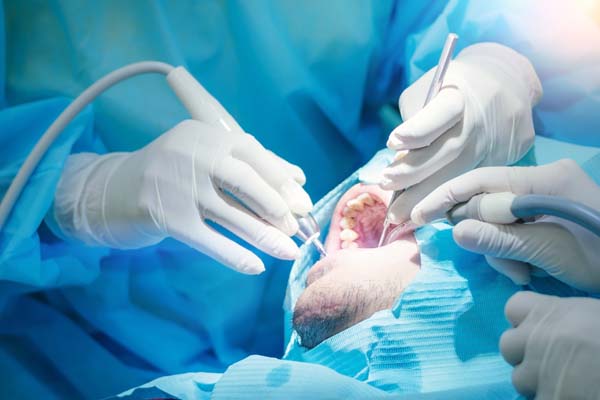Ask an Oral Surgeon: 7 Teen Wisdom Tooth Removal FAQs

Although extraction is a common procedure, many young patients and their parents have concerns about it. This article answers some frequently asked questions about wisdom tooth removal.
7 Common questions about wisdom tooth extraction
The following are some typical wisdom tooth removal questions and answers. Reviewing this information with teenaged patients may be helpful.
1. What are wisdom teeth?
Wisdom teeth are the third and final pair of molars and usually emerge between the ages of 17 and 25 if there is adequate room in the mouth for them to erupt. While wisdom teeth can erupt correctly aligned and healthy, they are more likely to get impacted or grow in just partly. The danger of infection is significant in these cases; thus, removal is suggested.
2. Do wisdom teeth hurt when they emerge?
Before seeing any indication of tooth eruption, the adolescent may suffer moderate discomfort or soreness. This discomfort may last a few weeks or even months as the tooth develops inside the jaw. Pain is typically mild or non-existent in most persons who have enough space on the jaw for their wisdom teeth to erupt. Pain generally only occurs when there is an infection.
3. Do the wisdom teeth need to be removed?
Most people do not have enough room in their jaw for wisdom teeth to emerge properly. Each person is unique; however, wisdom teeth may need to be removed if a dentist notices signs of oral changes like impaction, gum disease, infection, pain, damage to nearby teeth, tooth decay, tumors, or cysts. The dentist may recommend wisdom tooth extraction as part of the teen's teeth straightening treatment or other dental treatments.
4. When should wisdom teeth be removed?
Wisdom teeth are often removed when most patients are between the ages of 16 and 22. The optimal time to remove wisdom teeth is when they are approximately half or a quarter of their potential full size. When a tooth is extracted too early, it might be difficult for the oral surgeon to grip the growing tooth. On the other hand, a full-sized wisdom tooth poses a greater danger of root fracture or nerve injury.
5. What is bleeding like after wisdom tooth removal?
After having their wisdom teeth removed, the teen may suffer mild bleeding for many hours. However, when done correctly, bleeding is reduced and may be managed with sutures (or stitches) and specific dressings.
6. How long does a wisdom tooth extraction take to heal?
After wisdom tooth surgery, most people recover in three to four days. If the teeth are impacted, it may take longer. Patients in their twenties tend to heal more quickly than those in their 40s and 50s.
7. What happens during wisdom tooth removal?
The oral and facial surgeon will provide an anesthetic to the adolescent and create an incision in the gum tissue to reveal the tooth and bone during wisdom tooth removal. The tooth will be extracted, the area will be cleaned, and the incision will be stitched to facilitate recovery. Finally, the surgeon applies gauze to the incision to aid in the formation of a blood clot.
The bottom line
If you have additional questions about wisdom tooth extraction, contact our dental office to book an appointment with an oral and facial surgeon.
Request an appointment here: https://spectrumsurgical.net or call Facial Spectrum at (816) 524-4334 for an appointment in our Lee's Summit office.
Check out what others are saying about our dental services on Yelp: .
Recent Posts
The jawbone is the part of the face that holds many essential elements together, such as the teeth, ligaments, and muscles; however, bone grafting may sometimes be necessary if the jawbone is too weak to perform these tasks. A person’s jawbone can deteriorate over time, whether due to age, genetics, poor oral health, cancer, or…
Finding lasting relief from issues such as misalignment and facial asymmetry can involve specialized procedures. Fortunately, corrective jaw surgery is a reliable option for addressing these concerns. A dental specialist realigns the upper or lower jaw during this process to promote better function and comfort. Although the procedure can benefit health and appearance significantly, a…
Many individuals seek rhinoplasty to enhance facial harmony, improve nasal function, or correct structural abnormalities. As a surgical procedure that reshapes the nose, rhinoplasty can address aesthetic concerns as well as breathing difficulties caused by structural defects such as a deviated septum. Understanding the consultation process, surgical techniques, and what to expect from the recovery…
The facelift is one of the oldest and most well-known cosmetic surgeries for restoring a youthful appearance to the face. If you are considering this procedure, it is important to understand the steps of the process and the time commitment involved. The specifics of the process can vary depending on the patient; however, here is…


